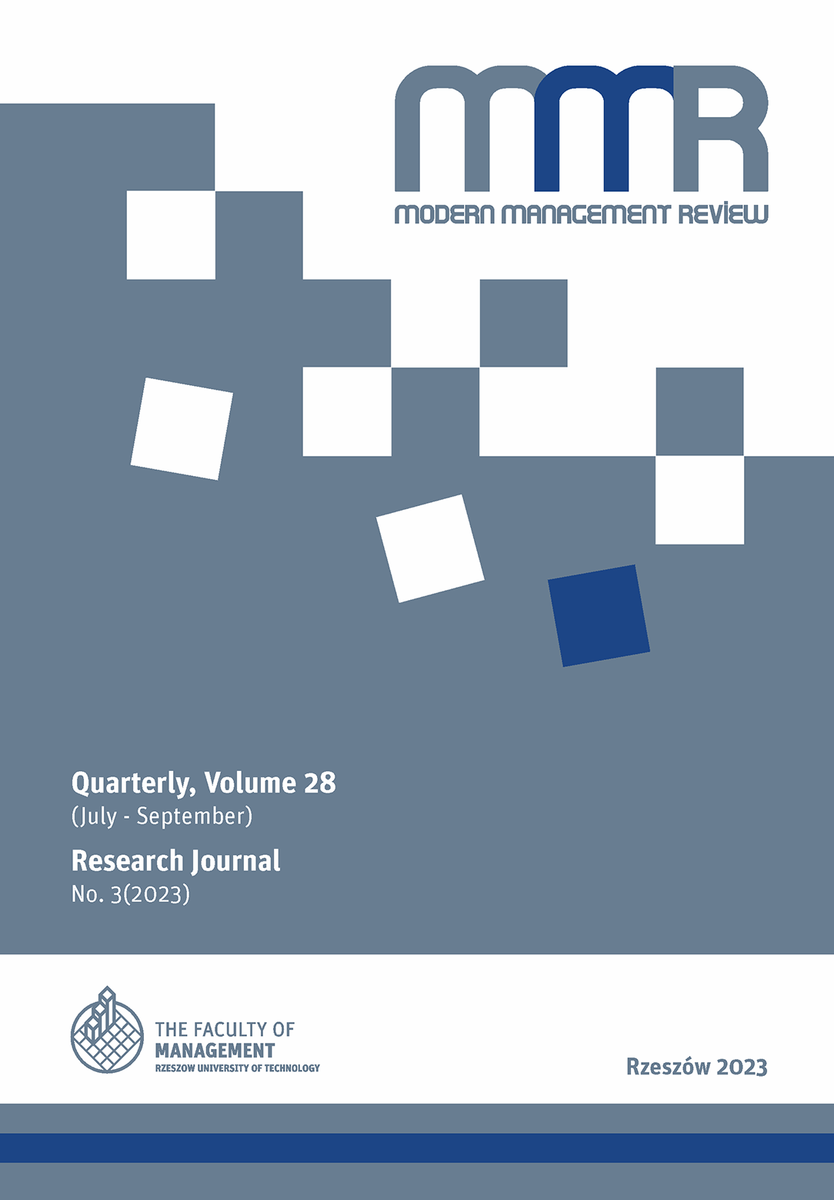Abstract
The aim of this study is to examine the literature on game theory, behavioral game theory, and bargaining method, and to find out the role of game bargaining in the employer-employee relationship by using a case study. To achieve the objectives, the author researched scientific articles published in reputable scientific journals and analyzed the case study by using a systematic trial-and-error method along with game theory and the bargaining method. This study makes a significant contribution to our understanding of negotiations and decision-making processes in labor markets. The methodology applied combines the principles of game theory, which analyzes strategic interactions between employer and employee, with the systematic trial-and-error method, which involves iteratively testing different negotiation strategies to identify the most effective ones.
By using this method, employer-employee relationships can benefit from improved communication, collaboration, and more mutually satisfactory agreements.
References
Allen, L.E. (1956). Games bargaining: a proposed application of the theory of games to collective bargaining. “Yale Law Journal”, 65(5). DOI: 10.2307/794152.
Ben abdelaziz, F., Neifar, S., de Bourmont, M. (2015). Auditing and Game Theory: A Survey [In:] Al-Shammari M., Masri H. (eds.), Multiple Criteria Decision Making in Finance, Insurance and Investment. Multiple Criteria Decision Making. Springer, Cham. DOI: 10.1007/978-3-319-21158-9_12.
Bonau, S. (2017). A case for behavioural game theory. “Journal of Game Theory”, 6(1).
Camerer, C.F. (2003). Behavioral Game Theory: Experiments in Strategic Interaction (The Roundtable Series in Behavioral Economics) (First Edition). Princeton University Press.
Camerer, C.F. (2004). Behavioral game theory: Predicting human behavior in strategic situations. “Advances in Behavioral Economics”. DOI: 10.1515/9781400829118-016.
Crawford, V. (1997). Theory and experiment in the analysis of strategic interaction [In:] Kreps, D., K. Wallis (eds.), Advances in Economics and Econometrics: Theory and Applica-tions Seventh World Congress. Cambridge University Press. DOI: 10.1017/cbo9781139052009.007.
Dixit, A.K., Skeath, S. (2004). Games of Strategy (Second Edition). WW Norton & Company.
Dobbins, T., Dundon, T., Cullinane, N., Hickland, E., Donaghey, J. (2017). Employment regulation, game theory and weak employee voice in liberal economies. “International Labour Review”, 156(3–4). DOI: 10.1111/j.1564-913x.2015.00053.x.
Friedman, S.R. (1983). Game Theory and Labor Conflict: Limits of Rational Choice Models. “Sociological Perspectives”, 26(4), 375-397. DOI: 10.2307/1389191.
Gacar, A. (2021). Oyun Kuramı Muhasebe Denetiminde Kullanılabilir Mi?. “Celal Bayar Üniversitesi Sosyal Bilimler Dergisi”, 19(04). DOI: 10.18026/cbayarsos.958450.
Gächter, S. (2004). Behavioral game theory [In:] Koehler, D.J., Harvey N. (9eds.), Blackwell handbook of judgment and decision making. Blackwell Publishing Ltd. DOI: 10.1002/9780470752937.ch24.
Gibbons, R. (1992). A primer in game theory. Pearson Academic.
Gintis, H. (2014). The Bounds of Reason: Game Theory and the Unification of the Behavioral Sciences. Princeton University Press. DOI: 10.23943/princeton/9780691160849.001.0001.
Harsanyi, J.C. (1967). Games with incomplete information played by “Bayesian” players, I–III Part I. The basic model. “Management Science”, 14(3). DOI: 10.1287/mnsc.14.3.159.
Heap, H.S., Varoufakis, Y. (2004). Game theory: A critical introduction. Routledge.
Leibenstein, H. (1982). The Prisoners' dilemma in the invisible hand: an analysis of intrafirm productivity. “The American Economic Review”, 72(2).
Luce, R.D., Raiffa, H. (1985). Games and decisions: Introduction and critical survey. New York: Dover Publications, Inc.
Kalai, E., Smorodinsky, M. (1975). Other solutions to Nash's bargaining problem. “Econometrica”, 43(3). DOI: 10.2307/1914280.
Kelly, A., 2011. Decision making using game theory: an introduction for managers. (Reissue edition). Cambridge University Press.
Kuhn, H.W., Tucker, A.W. (Eds.). (1953). Contributions to the Theory of Games (No. 28). Princeton University Press.
Madani, K. (2010). Game theory and water resources. “Journal of Hydrology”, 381(3–4).
Milgrom, P.R., Roberts, J.D. (1992). Economics, organization and management. Prentice-Hall, Inc.
Morgenstern, O., Von Neumann, J. (1953). Theory of games and economic behavior. Princeton University Press.
Myerson, R.B. (1977). Graphs and cooperation in games. “Mathematics of operations research”, 2(3).
Nash, J.F. (1950a). Equilibrium points in n-person games. “Proceedings of the national academy of sciences”, 36(1).
Nash Jr, J.F. (1950b). The bargaining problem. “Econometrica”.
Nash, J. (1951). Non-cooperative games. “Annals of Mathematics”, 54(2).
Osborne, M.J., Rubinstein, A. (1994). A course in game theory. Cambridge: MIT Press.
Pandey, V.K., Chermack, T.J. (2008). Game theory and strategic human resource development. “Advances in Developing Human Resources”, 10(6). DOI: 10.1177/1523422308324660.
Rand, D.G., Nowak, M.A. (2013). Human cooperation. “Trends in cognitive sciences”, 17(8).
Rêgo, L.C., Halpern, J.Y. (2012). Generalized solution concepts in games with possibly unaware players. “International Journal of Game Theory”, 41(1). DOI: 10.1007/s00182-011-0276-8.
Schwalbe, U., Walker, P. (2001). Zermelo and the early history of game theory. “Games and economic behavior”, 34(1). DOI: 10.1006/game.2000.0794.
Sharma, R.S., Bhattacharya, S. (2013). Knowledge dilemmas within organizations: Resolutions from game theory. “Knowledge-Based Systems”, 45. DOI: /10.1016/j.knosys.2013.02.011.
Witteloostuijn, A.V. (2003). A game-theoretic framework of trust. “International Studies of Management and Organization”, 33(3). DOI: 10.1080/00208825.2003.11043685.

This work is licensed under a Creative Commons Attribution-NonCommercial-NoDerivatives 4.0 International License.
Copyright (c) 2023 Modern Management Review


